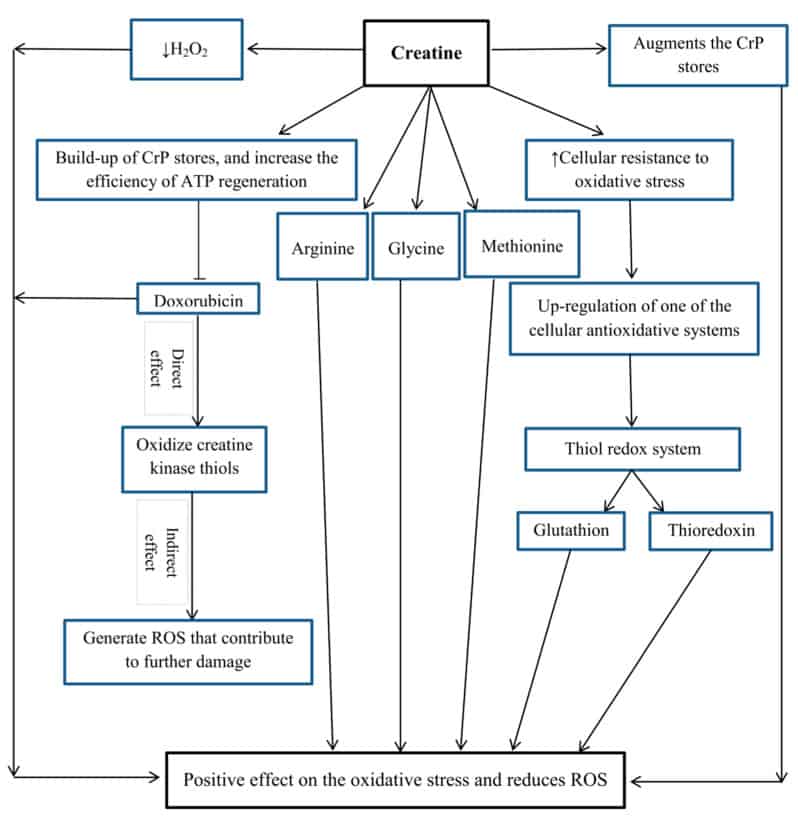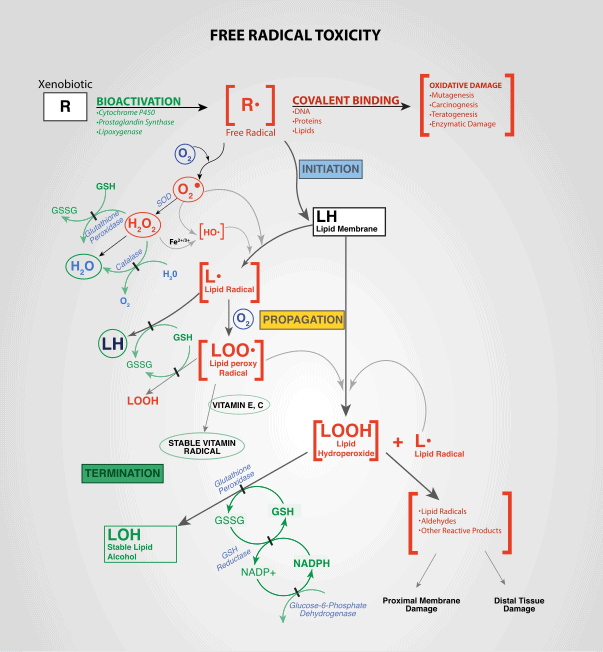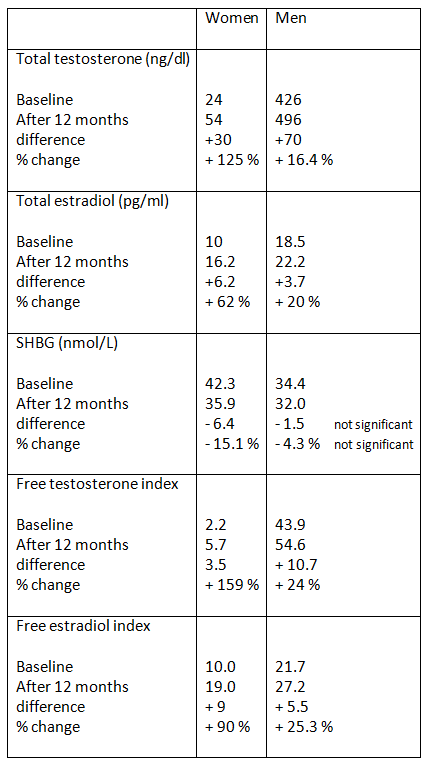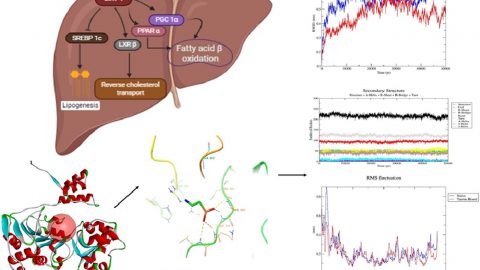Of the many potential benefits of creatine, that of an antioxidant is one of the more unexpected in my view, but studies over the decades suggest antioxidant properties. Precisely how creatine works as an antioxidant has not been fully elucidated, but a recent review paper via the J. Nutrients, does an excellent job of exploring the topic. It appears more likley creatine itself is not an antioxidant but up-regulates key antioxidant enzymes and pathways.
Why is that important? Oxidative stress (which antioxidants control), is associated with a long list of diseases best avoided, aging, performance decrements, damage to muscle fibers during intense exercise, inflammation, and so forth. That should not be interpreted as all oxidative stress is inherently a negative per se, but when oxidative stress exceeds the capacity of antioxidant systems to compensate (i.e., redox balance), is when the damage occurs and inflammation results. The paper goes into detail about that topic for those interested. The paper summarizes the issue as:
“Oxidative stress is an enclosed physiological pathway regulated by the antioxidant mechanisms. Improper regulation of oxidative stress is correlated with several recurrent pathological or physiological conditions. Oxidative stress can be defined as an imbalance between the generation of harmful free radicals and their removal by the antioxidant defense system.”

Tangentially, as a topic the world has been dealing with for the past several years and will be for the foreseeable future, reactive oxygen species (ROS) plays a key role in the serious complications and death from covid, and there’s some indications creatine may be of value in Post Covid Syndromes, the impact creatine has on ROS, is likely yet another benefit of creatine supplementation for a wide range of potential benefits.
Creatine Supplementation, Physical Exercise and Oxidative Stress Markers: A Review of the Mechanisms and Effectiveness
Nutrients. 2021 Mar; 13(3): 869.
Abstract
Oxidative stress is the result of an imbalance between the generation of reactive oxygen species (ROS) and their elimination by antioxidant mechanisms. ROS degrade biogenic substances such as deoxyribonucleic acid, lipids, and proteins, which in turn may lead to oxidative tissue damage. One of the physiological conditions currently associated with enhanced oxidative stress is exercise.
Although a period of intense training may cause oxidative damage to muscle fibers, regular exercise helps increase the cells’ ability to reduce the ROS over-accumulation. Regular moderate-intensity exercise has been shown to increase antioxidant defense. Endogenous antioxidants cannot completely prevent oxidative damage under the physiological and pathological conditions (intense exercise and exercise at altitude). These conditions may disturb the endogenous antioxidant balance and increase oxidative stress. In this case, the use of antioxidant supplements such as creatine can have positive effects on the antioxidant system.
Creatine is made up of two essential amino acids, arginine and methionine, and one non-essential amino acid, glycine. The exact action mechanism of creatine as an antioxidant is not known. However, it has been shown to increase the activity of antioxidant enzymes and the capability to eliminate ROS and reactive nitrogen species (RNS). It seems that the antioxidant effects of creatine may be due to various mechanisms such as its indirect (i.e., increased or normalized cell energy status) and direct (i.e., maintaining mitochondrial integrity) mechanisms.
Creatine supplement consumption may have a synergistic effect with training, but the intensity and duration of training can play an important role in the antioxidant activity. In this study, the researchers attempted to review the literature on the effects of creatine supplementation and physical exercise on oxidative stress.
Full paper HERE.
Will Brink is the owner of the Brinkzone Blog. Will has over 30 years experience as a respected author, columnist and consultant, to the supplement, fitness, bodybuilding, and weight loss industry and has been extensively published. Will graduated from Harvard University with a concentration in the natural sciences, and is a consultant to major supplement, dairy, and pharmaceutical companies.
His often ground breaking articles can be found in publications such as Lets Live, Muscle Media 2000, MuscleMag International, The Life Extension Magazine, Muscle n Fitness, Inside Karate, Exercise For Men Only, Body International, Power, Oxygen, Penthouse, Women’s World and The Townsend Letter For Doctors.
He’s also been published in peer reviewed journals.
Will is the author of the popular e-books, both accompanied by private members forum access , Bodybuilding Revealed & Fat Loss Revealed.
You can also buy Will’s other books on Amazon, Apple iBook, and Barnes and Noble.







